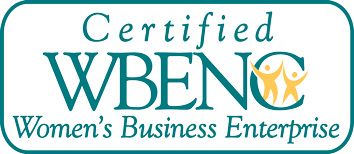Five Ways to Take Control of Your Career
Happy to even have a job in this economy? An experienced ‘corporate navigator’ says just being grateful isn’t enough
NEW YORK – August 20, 2010 — Most of us are happy to just be employed these days, but an experienced ‘corporate navigator’ says there are also things we should be doing to take control of our careers.
“By control, I mean ways to get out of your own way, be happier, and perhaps even make more money,” says veteran career professional Amanda Mitchell, of ourcorporatelife.com. “I’ve spent my professional life reducing corporate suffering — yes, there is such a thing — using practical strategies to help people thrive in the workplace.”
After more than 20 years spent helping companies and employees figure out what they need and how to get it, Mitchell has created a list of five ways working professionals – from first-job holders to senior executives – can take control of their careers.
1. Make sure you and your company have the same values
If you value excellence and your workplace believes 80% is good enough, that’s a problem, says Mitchell. “You’ll work yourself to death to get a good outcome, resent your coworkers because you’re going to do the 20% they didn’t do, and you’ll think the boss is an idiot for letting work go out the door at 80%. You need to be in a job where both you and your management have the same standards of excellence— then you’ll naturally be supported by like-minded people.”
2. Be appropriately responsible
Some of us are high achievers, so we often expand the scope of our jobs because we’re able to do everything, and usually do it well. However, Mitchell warns that when others are struggling and we step in, this only hides problems in the company, creates helpless teammates, and results in a person working around the clock with little satisfaction. “If things go well, the person who was supposed to do the job usually gets credit. If things go bad, the high achiever – that’s you — is left holding the bag. Only accept responsibility when you also have authority.”
3. Do only YOUR job.
This is connected to #2, says Mitchell. “If you have high standards and believe that work directly reflects on you personally, you’re going to offer to take on others’ work just to make sure the end product is as good as it can be. You’re not helping — doing someone else’s job disempowers them, hides business issues, and makes you crabby.”
4. Figure out what you can and can’t control.
If you’re a high achiever, congratulations, you’re also probably super accountable. The bad news, says Mitchell, is that you’re likely accountable for things you can’t control. “So even if you did everything right that new product launch that you worked so hard on may go bust—through no fault of your own. If the launch is not a ’success,’ you need to manage internal expectations. The company didn’t get the desired results, but you did your part well. Don’t beat yourself up for something you couldn’t control.”
5. Maintain a powerful mindset.
“How you believe is how you behave,” Mitchell explains. “If we listened to the media, we’d all give up right now, because it seems like the economy and Corporate America are on a fast track to hell and things will never get better. Is that true? Aren’t most people doing okay?” She believes that the influences and influencers you surround yourself with color your mindset and help you see (or get in the way of your seeing) real options. “In other words, those around you might be invested in you staying in your loser job, because if you made a change, they have no excuse for not changing. It takes much more energy to be positive and see opportunities than the converse—and most people choose the path of least resistance.”
Mitchell concludes: “Am I saying taking control of your career will solve all your problems? I only wish it were that simple, but being more aware of what you believe, what you do, how you do it, and your approach to your career, helps you see opportunities.
You’ll benefit, your company will benefit, and ultimately, I’ll be the one out of a job,” she concludes.
Amanda Mitchell is the founder of Our Corporate Life LLC (www.ourcorporatelife.com), a company that offers a new system for reducing unnecessary workplace suffering caused by the organizational, interpersonal, and ethical issues of our time. Our Corporate Life (OCL) is founded on the belief that adhering to core human values and achieving business success are always compatible. A belief crystallized for Amanda during her corporate career each time she witnessed a company sacrifice profitability by wasting human capital.


